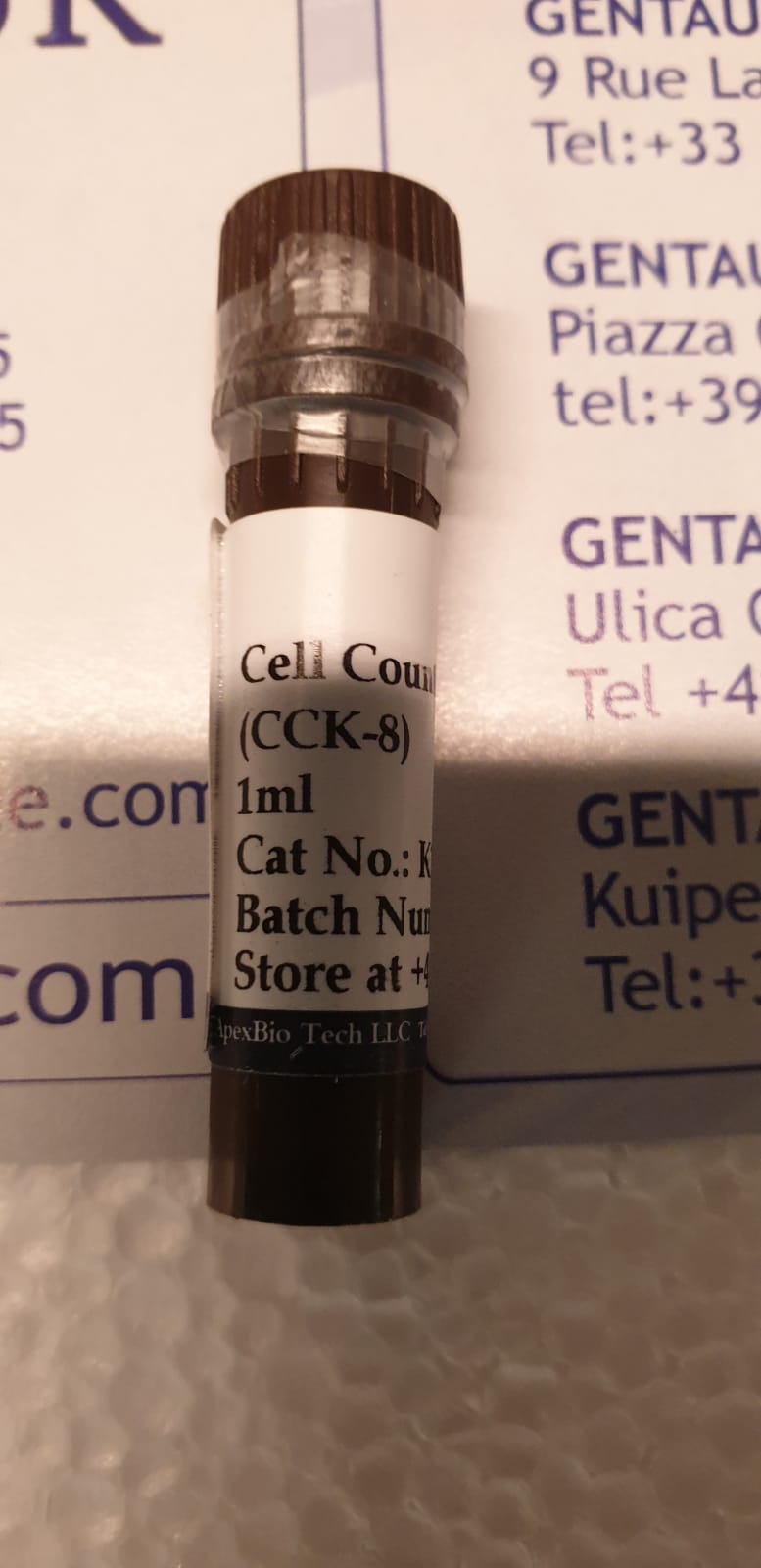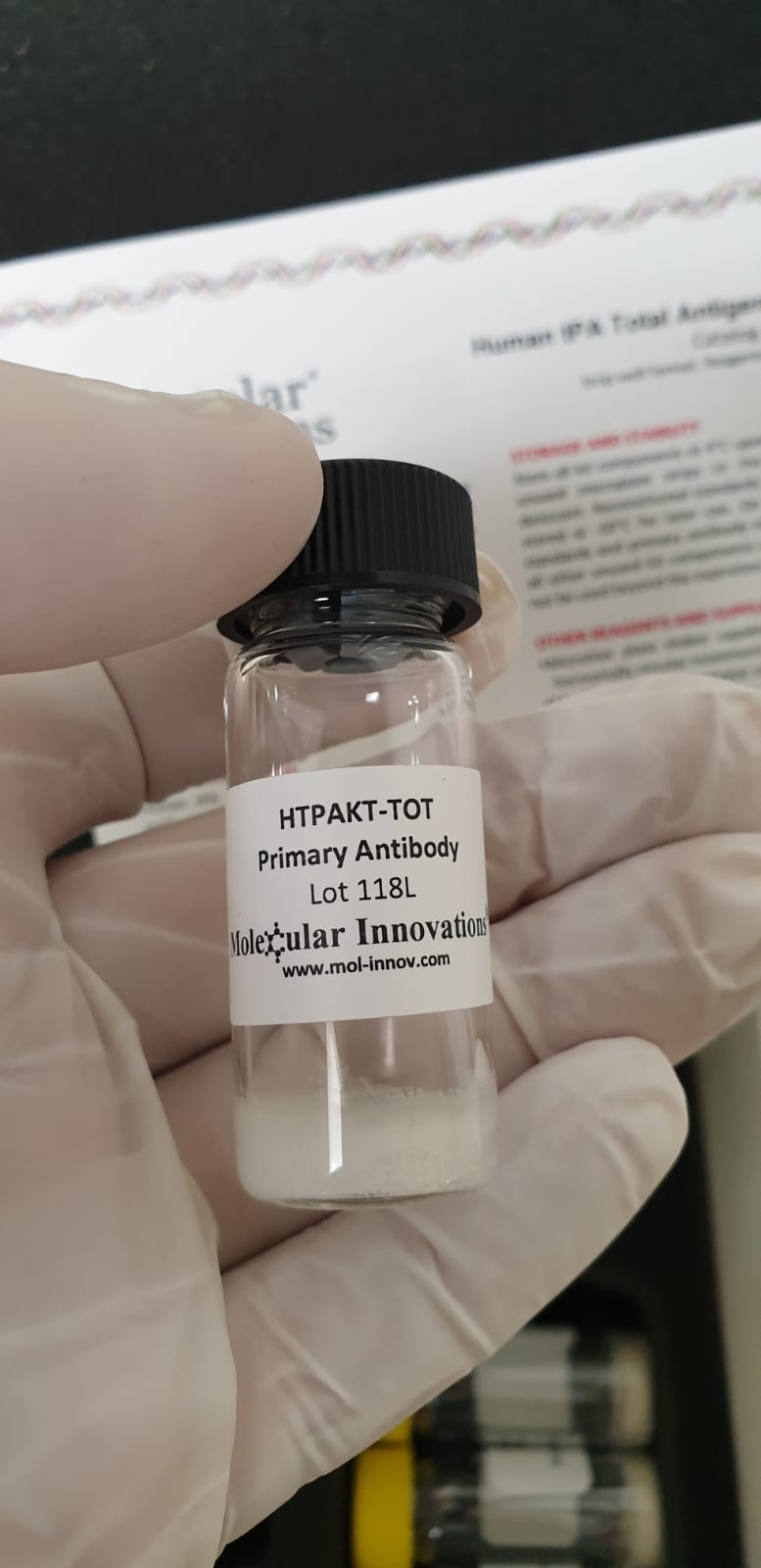Antibody supplies
Commercial Polyclonal and monoclonal antibodies suppliers
Antibody advantages for IHC, WB, Flow, Chip, Elisa.
Antibodies are quiet large Y-shaped proteins called immunoglobulins which are produced by B cells for adaptive immune response to foreign molecules.
Due the strong affinity of an antibody to one particular sequence, an epitope (typically 4-7 amino acids in length), they are made for research to identify proteins of interest in Weztern Blot.
Antibody isotypes like IgG are most commonly used for research.
Polyclonal and monoclonal
Polyclonal antibodies contain a heterologous mixture of IgGs against the whole antigen, whereas monoclonal antibodies are composed of a single IgG against one epitope.
Rabbit polyclonal antibodies bind to the same antigen, but different epitopes; and mouse monoclonal antibodies bind to the same epitope on a target antigen.

Advantage of Polyclonal vs. monoclonal antibodies?
Differences between the two types of antibodies.
- Polyclonal antibodies
- Monoclonal antibodies
Poly is to a mixture of immunoglobulin molecules that are secreted against a particular antigen.
Mono clones are a homogenous population of antibodies that are produced by a single clone of plasma B cells.
Produced by different clones of plasma B cells. Produced by the same clone of plasma B cells.
Production does not require hybridoma cell lines. Production requires hybridoma cell lines.
A heterogeneous antibody population. A homogenous antibody population.
Interact with different epitopes on the same antigen. Interact with a particular epitope on the antigen.
Polyclonal antibodies:
Advantages and disadvantages
Advantages:
Inexpensive and relatively quick to produce (+/- 3 months).
Higher overall antibody affinity against the antigen due to the recognition of multiple epitopes.
Have a high sensitivity for detecting low-quantity proteins.
High ability to capture the target protein (recommended as the capture antibody in a sandwich ELISA).
Antibody affinity results in quicker binding to the target antigen (recommended for assays that require quick capture of the protein; e.g., IP or ChIP).
Superior for use in detecting a native protein.
Easy to couple with antibody labels and rather unlikely to affect binding capability.
Disadvantages:
Batch-to-batch variability as produced in different animals at different times.
High chance of cross-reactivity due to a recognition of multiple epitopes (affinity purified antibodies display a minimum cross-reactivity).

Monoclonal antibodies: Advantages and disadvantages
Advantages:
Batch-to-batch reproducibility (high homogeneity).
Possibility to produce large quantities of identical antibody (an advantage for diagnostic manufacturing and therapeutic drug development).
High specificity to a single epitope reflected in low cross-reactivity.
More sensitive in assays requiring quantification of the protein levels.
Low background noise.
Disadvantages:
More expensive to produce. It is necessary to produce a pool of several monoclonal antibodies.
Requires significantly more time to produce and develop the hybridized clone (+/- 6 months).
More susceptible to binding changes when labeled (e.g. with a chromogen or a fluorophore).
Camel Recombinant antibodies
The next generation of monoclonal antibodies are recombinant antibodies, which are considered to be the future of antibody manufacturing.
Ablynx Recombinant antibodies are monoclonal antibodies that have been produced by in vitro cloning of the antibody heavy and light chain DNA sequences from the B cells or plasma cells of immunized animals.
Unlike traditional monoclonal antibodies produced from hybridomas, the recombinant vectors are introduced into expression hosts (e.g. E. coli) to then produce the antibodies. This recombinant technology results in almost no lot-to-lot variability, removing the risk of genetic drift that can result in variations in of camel monoclonal antibodies.
Find out more about our suppliers of antibodies and production process
A
- AbAffinity
- Abcam
- AbD Serotec
- AbGent
- Abkem Iberia
- Abnova
- Absea
- Academy Biomed
- Accurate Chemical and Scientific Corporation
- Acris Antibodies
- Actigen
- Active Motif
- Advanced Biotechnologies, Inc.
- Advanced Immunochemical, Inc.
- Advanced Targeting Systems
- Affibody
- Affinity Biologicals
- Agdia
- AgriSera
- Alexis Biochemicals
- Alomone Labs
- Alpha Diagnostic International
- AlphaGenix
- American Diagnostica Inc
- American Qualex
- American Research Products
- American Type Culture Collection (ATCC)
- Anadis Limited
- Anaspec
- Ancell
- AngioBio
- Aniara Corporation
- Angio-Proteomie
- Anogen
- Antibodies Incorporated
- Antibodies-Online
- AntibodyBcn
- AntibodyShop
- Apotech Corporation
- Aquatic Diagnostics Ltd
- Araclon Biotech
- Argene-Biosoft
- Assay Designs
- Athens Research and Technology
- Atlas Antibodies
- Aves Labs, Inc.
- Aviva Systems Biology
- Bachem
- Backman Coulter
- Becton Dickinson
- BD Biosciences
- Bethyl Laboratories
- BioCare Medical
- BioCytex
- Biodesign International
- Biogenesis
- Biogenex
- BioLegend
- Biomarket
- Biomedica
- Biomedical Technologies
- BIOMOL International
- BioProcessing Inc.
- Biorbyt
- Biosense Laboratories
- Biosensis
- Biosonda
- BiosPacific
- Bioss Inc.
- BioSupply UK
- BioSynthesis
- Biotrend
- Biovendor Laboratory Medicine, Inc.
- BMA Biomedical
- Boster Biological Technology
- Boston Biochem
- Capralogics
- Capricorn Products
- Cayman Chemical Company
- Cedarlane Laboratories
- Cell Marque
- Cell Sciences
- Cell Signaling Technology
- CeMines
- Chemicon International
- Clontech
- Cortex Biochem
- Covance
- Creative Biomart
- Cytolab
- Cytoshop
- CytoStore
- Dako
- Delta Biolabs
- Diaclone
- Diagnostic BioSystems
- Diagnostic Systems Laboratories
- Diatec.com
- Dutch Diagnostics
- EastCoast Bio
- eBioscience
- Echelon Research Laboratories
- ECM Biosciences
- EMD Millipore
- EnCor Biotechnology
- Endocrine Technologies Inc.
- Epitomics
- Eurogentec
- Everest Biotech
- Exalpha Biologicals, Inc.
- EXBIO
- EY Laboratories
- G-Biosciences
- Gallus Immunotech
- GEMAC Bio
- General Bioscience Coporation
- Genesis Biotech
- GeneTex
- Genhot Laboratories
- Gentaur
- GenScript Corporation
- GenWay Biotech
- GL Biochem (Shanghai) Ltd
- GloboZymes
- Good Biotech Corp
- Green Mountain Antibodies
- Groovy Blue Genes
- IBT - Immunological & Biochemical
- IDS Ltd
- Imgenex
- IMMCO Diagnostics
- IBL Hamburg
- IHC World, LLC
- Immune Systems Ltd
- ImmunoDetect
- Immunodiagnostik
- immunoGlobe
- ImmunoKontact
- Immunoleader
- Immunology Consultants Laboratory
- Immunometrics
- ImmunoPrecise
- Immunostar
- Immunostep
- ImmunoTools
- ImmunoVision
- Immuquest
- Innova Biosciences
- Innovex Biosciences
- Insight Biotechnology
- Invitrogen
- Lab Vision Corporation
- LAE Biotechnology Co.
- Lampire Biological Laboratories
- Lee BioSolutions, Inc.
- Leinco Technologies
- LifeSpan Biosciences, Inc.
- LifeTein LLC
- MabTech
- Maine Biotechnology Services, Inc.
- Maxanim
- MBL International Corporation
- Medix Biochemica
- Meridian Life Science, Inc.
- Microbix
- MicroPharm Ltd
- Microtek International, Inc.
- MilleGen
- Millipore
- Miltenyi Biotec
- MitoSciences
- MoBiTec
- ModiQuest
- Molecular Innovations
- MP Biomedicals
- Mubio Products
- NatuTec
- Neoclone
- NeuroMab
- Neuromics
- Neuromics Antibodies
- Newcomer Supply
- New England Biolabs
- Novocastra
- Novus Biologicals
- Nordic Immunological Laboratories
- Norrin Laboratories
- NUPTEC (Hangzhou NeuroPeptide Biological Science and Technology Incorporation, Ltd)
- Pacific Immunology Corp
- PBL Biomedical Laboratories
- Pel-Freez Biologicals
- PeproTech, Inc.
- PerkinElmer
- Perseus Proteomics
- Phoenix Pharmaceuticals
- PickCell Laboratories
- Pierce Biotechnology
- Polymun Scientific
- Polysciences, Inc.
- Precision Antibody
- ProMab Biotechnologies
- Promega Corporation
- ProSci, Inc.
- Protein Biotechnologies
- Proteintech
- ProteoGenix
- Proteus BioSciences, Inc.
- Protos Immunoresearch
- R&D Systems
- Randox
- Randox Life Sciences
- Research Diagnostics
- Roboscreen GmbH
- Rockland Immunochemicals
- Santa Cruz Biotechnology
- ScyTek Laboratories
- Selleck Chemicals
- Seramon
- Seven Hills Bioreagents
- Sigma-Aldrich
- Signalway Antibody
- Signature Immunologics
- Signet Laboratories
- Silver Lake Research
- Sino Biological Inc.
- SouthernBiotech
- Spring Bioscience
- Statens Serum Institut
- StemCell Technologies
- Sterogene Bioseparations
- Strategic Diagnostics
- swant
- Synaptic Systems GmbH

